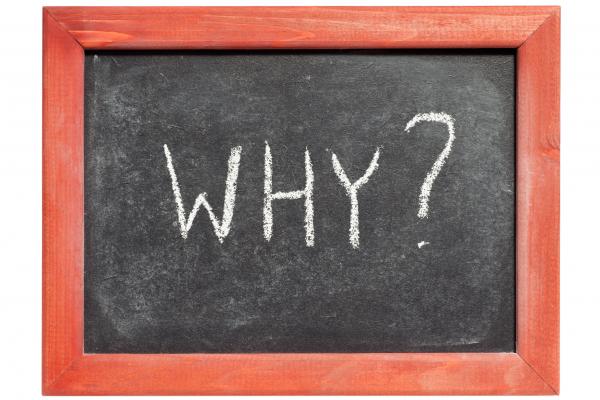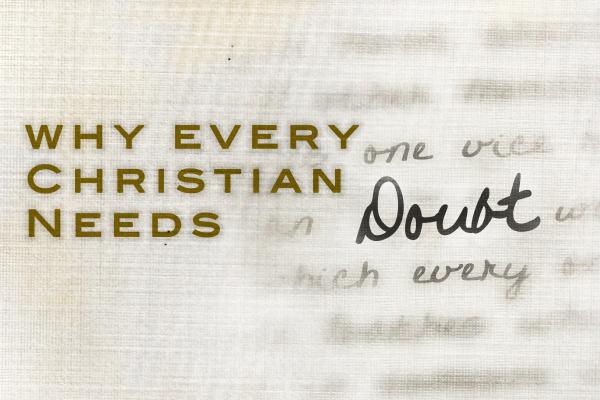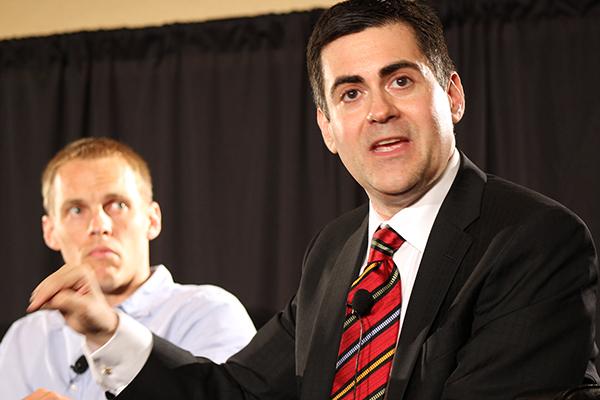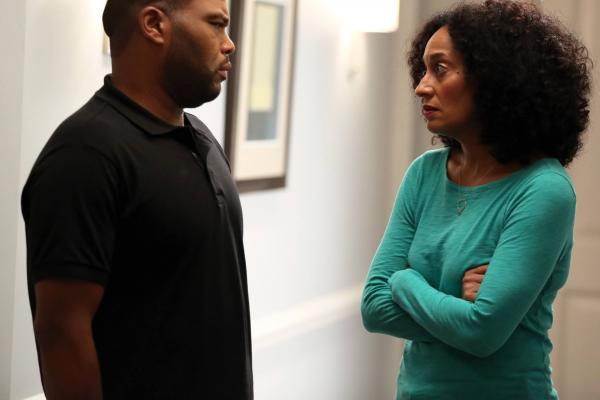I believe that Nelson Mandela was the greatest political leader of the 20th century — because of his 27 years of spiritual formation in prison. Visiting Mandela’s jail cell on Robben Island was the most emotional moment of my visit to South Africa this past summer. How could such a small place so change the world?
I found this quote by Mandela when I visited the Apartheid Museum in Johannesburg on my last day in South Africa. It’s about how “the cell” drove him much deeper into his interior life. I think his words are a good reflection for us as we choose our elected leaders next week:
“The cell is an ideal place to know yourself. People tend to measure themselves by external accomplishments, but jail allows a person to focus on internal ones, such as honesty, sincerity, simplicity, humility, generosity and an absence of variety. You learn to look into yourself.”
Let’s reflect on that quote, both personally as leaders in the faith, and politically as we confront a very depressing election.
Know yourself. That is such different advice from what our candidates and other leaders get from their advisors and pollsters and boards of directors who want them to know their audience, their constituency, their potential voters or consumers — but not so much themselves. Leaders are often being told to “be who they need you to be,” and seldom are they invited to go deeper into themselves.
One of the greatest sermons I ever heard on the subject of communion was offered by the head pastor of a Christian Missionary Alliance church in Princeton, N.J., back in the late 1980s. This pastor spent most of that sermon talking about the cross and how Jesus’ body was literally broken. I can still hear the crunch of the nails going into Jesus’ wrists that I heard in my mind’s ear that Sunday. And this wasn’t Easter week. It was just a communion Sunday.
Toward the end of his sermon, the pastor brought out a piece of saltine cracker that lay in the communion plate. He cracked it and then he said this: “Every time I take communion I hear the crack of the bread in my mouth and I bite and remember the crack of Jesus’ bones … and I remember that I did that.”
I wept as we took communion that day.
But isn’t that really about dis-union — the dis-union of Christ’s actual physical body? The cracking of his bones, the breaking of his legs, the piercing of his flesh; the cross seems to be more about a breaking apart than a bringing together of Christ’s body.
Right now when I see the lived reality of the church in our world, it seems we are more in a state of dis-union than communion.
Right-wing Christians and the politicians who pander to them like to say that the United States was, is and always should be a “Christian nation.”
Why, then, are they so obsessed about money and political power and so determined to make people afraid?
After all, Jesus spent an estimated two-thirds of his teaching time on wealth and power. His message was clear, if radical: Give wealth away rather than build bigger barns. Submit to others rather than seek power. Love your enemies rather than smite them.
Moreover, his one new commandment was equally clear: Don’t be afraid. Live without fear. Live in trust and confidence. Live in harmony. Make peace. But whatever happens, don’t be afraid.
Instead of preaching a gospel of self-sacrifice and generosity, right-wing Christians support the mega-wealthy who yearn to stifle democracy and move us further toward plutocracy: Keep the riffraff from voting. Keep alternative views out. Live in the bubble of like-minded people, not the marketplace of ideas and diversity where Jesus lived.
Last week’s school shooting in Marysville, Wash., has us all asking the question again: Why did this happen?
Snohomish County Sheriff Ty Trenary gave voice to the despair many are feeling as we search for answers. “The question everybody wants is ‘Why?’ I don’t know that the ‘why’ is something we can provide.”
Why did Jaylen Fryberg text his friends and family members to join him for lunch only to shoot them and then shoot himself? Whenever these tragedies occur we are tempted to blame the shooter by making him into a monster. We label the shooter “mentally ill,” claim that he was isolated from his peers, or was a generally troubled youth.
The answer to the question “Why?” has usually been to blame the shooter. We make the shooter into a monster because it allows us to make sense of senseless violence. Why did this tragedy happen? Because he was evil.
But Fryberg’s case won’t allow such easy answers. By all accounts, he was a popular and happy young man, seemingly incapable of causing such harm.
This horrific shooting is so scary because no one saw it coming. If a popular kid like could commit such a heinous act, anyone could do the same. Fryberg’s case deprives us of the easy out of blaming another. The only thing left is to face our own violence.
Basima al-Safar retouches a picture of Jesus on an easel outside her house overlooking the flat Nineveh plains, 30 miles north of Mosul.
The murals she paints tell the story of her people, Christians in Iraq. But with Islamic State militants nearby, she is worried that life in Alqosh and towns like it could soon come to an end.
The Assyrian Christian town of around 6,000 people sits on a hill below the seventh-century Rabban Hormizd Monastery, temporarily closed because of the security situation. Residents of Alqosh fled this summer ahead of Islamic State militants. Around 70 percent of the town’s residents have since returned. Still, a sense of unease hangs in the air.
Below the monastery in the boarded up bazaar a lone shopkeeper waits for customers. At the edge of town local Christian fighters staff lookout posts, checking for danger. With Islamic State fighters just 10 miles away, these men and most residents of the town are scared that they may have to flee again.
The End of Our Exploring by Matthew Lee Anderson is worth reading. In fact, it’s worth getting the book just to read the last nine pages of his final chapter that beautifully and poignantly describes a Christian life well questioned.
The theme of the book is the challenge of questioning well. Anderson argues that not only is questioning important to a well-reasoned faith, but it is core to the development of Christian intellect and character. Writing out of a conservative Christian context that is often characterized as an anti-intellectual space that discourages those whose questions would disrupt the status quo, Anderson makes a critical case for questioning’s importance to that community — a case that applies well to the Christian community as a whole.
The End of Our Exploring includes his critique of a culture that prizes “sincerity” above all else (35), his distinction between easy access to information and pursuing understanding (72), his condemnation of the constant pursuit of novelty in place of truth (117), and his encouragement that churches allow “belonging after believing” for those who have turned away from their faith (204), just to name a few. And I would be remiss if I did not mention the section in which he points to our personal friendship as “good for America,” as we are friends who believe that the other is wrong about nearly everything (160).
In that vein, I don’t want to spend too much time pointing out my areas of agreement when we both have a lot more fun jumping in on the areas of contention.
Southern Baptist leader Russell Moore has denounced reparative therapy, the controversial idea that people who are gay or have same-sex attraction could become straight.
Joining a chorus of other religious leaders who have departed from a once-popular therapy, some evangelical attempts at reparative therapy have been “severely counterproductive,” Moore told a group of journalists during a press conference at the Ethics and Religious Liberty Commission’s national conference in Nashville on Oct. 28. He also gave similar remarks to the conference of about 1,300 people.
“The utopian idea if you come to Christ and if you go through our program, you’re going to immediately set free from attraction or anything you’re struggling with, I don’t think that’s a Christian idea,” Moore told journalists. “Faithfulness to Christ means obedience to Christ. It does not necessarily mean that someone’s attractions are going to change.”
Moore said evangelicals had an “inadequate view” of what same-sex attraction looks like.
I was browsing an elaborate Halloween store and came across an aisle of religious-oriented costumes. There were the usual ones: nun, rabbi, priest. And one I’d never seen before.
Yes, you can go Trick-or-Treating as Jesus this year. There is a Jesus costume.
What do you think about that?
I’m guessing some people will feel offended; I understand and respect where they’re coming from. Others would see it as harmless and find some humor in it. (Hey, see the guy in the Jesus costume? He gave treats to the whole neighborhood using only two Swedish Fish.)
I had a feeling there was material for a blog in all of this somewhere, so I took a photo, filed the idea in the back of my brain, and moved on to inspect the rubber rats and flying bats that are more my style.
Eventually, a thought worked its way into the front of my brain:
Why shouldn’t someone wear a Jesus costume?
Black-ish, the new ABC sitcom created by Kenya Barris, really is one of the funniest shows on TV this season. I laughed my head off watching a marathon run of the first four episodes On Demand. Now it's set to record each week on DVR. One of the things I really appreciate about Black-ish is that it takes universal issues and works them out through a genuinely African-American lens.
For example, in the pilot episode the father, Andre “Dre” Johnson, played by Anthony Anderson, is looking forward to a much deserved promotion to Senior VP at a major marketing firm. He is surprised to find out he’s been promoted to Senior VP of the Urban Division. We can all relate to wanting the promotion, but Anderson’s challenge is one particularly familiar within the black professional class. How do you jump the dreaded, yet anticipated, pigeonholing of your value and worth to an organization as a “black” person? How do you become just Senior VP — not SVP of the “Urban” Division? How do you become human? The way Anderson works out this challenge is hilarious. I rolled with laughter even after the half-hour sitcom had reached its conclusion.
And then there’s last week’s episode when the biracial mother, Rainbow, masterfully played by Tracee Ellis Ross, loses her young son, Jack, while shopping at a department store. It turns out Jack is hiding inside a clothes rack and is eventually found by a sympathetic officer. We can all relate to this situation. Children hide in department stores. I did the exact same thing to my own mother when I was about Jack’s age. I hid between the racks at a Marshalls. But Rainbow and Dre’s conundrum rears its head when they are confronted with the question: Will they spank their son? It seems simple enough, but it’s not. This is not only a question of parenting, it is also a question of tradition and culture.
In fact, each episode presents a universal situation that pushes a particular issue of culture within the African-American community. Ultimately, the situation presses the question: “What does it means to be black?”
Pope Francis on Oct. 27 waded into the controversial debate over the origins of human life, saying the big bang theory did not contradict the role of a divine creator, but even required it.
The pope was addressing the plenary assembly of the Pontifical Academy of Sciences, which gathered at the Vatican to discuss “Evolving Concepts of Nature.”
“When we read about Creation in Genesis, we run the risk of imagining God was a magician, with a magic wand able to do everything. But that is not so,” Francis said.
“He created human beings and let them develop according to the internal laws that he gave to each one so they would reach their fulfillment.”
Francis said the beginning of the world was not “a work of chaos” but created from a principle of love. He said sometimes competing beliefs in creation and evolution could co-exist.









